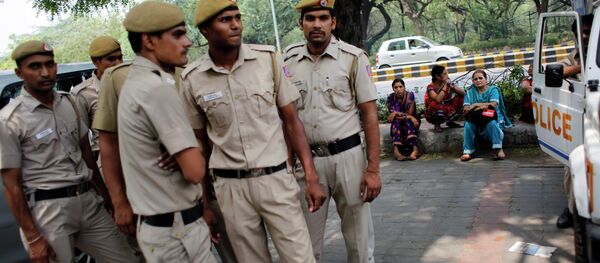The Equal Justice Initiative (EJI) said Tuesday that the museum, named From Enslavement to Mass Incarceration, will sit on a six-acre site and serve as a memorial to the victims of "racial terror lynching." The group notes that between 1877 and 1950, some 4,000 lynchings took place in the US.
"From Enslavement to Mass Incarceration will be situated within 150 yards of one of the South’s most prominent slave auction sites and the Alabama River dock and rail station where tens of thousands of enslaved black people were trafficked," said the EJI, adding, "The museum will connect the history of racial inequality with contemporary issues of mass incarceration, excessive punishment, and police violence."
Founded in 1989, the EJI advocates for the rights of prisoners who were denied fair trial, either because they couldn’t afford an adequate lawyer or because of racial prejudice. The organization has been able to overturn convictions and help many people on death row.
Engraved on concrete columns throughout the museum-memorial will be the names of the more than 4,000 lynching victims, with each column representing a county where the lynchings occurred.
Bryan Stevenson, founder and executive director of the EJI, said the time has come for the US to confront some of the darker realities of its past.
"I think it’s important because when you do that, you change your identity," he said, "You change your relationship to these histories of mass atrocities and violence. But when you don't do that, things linger. The smog created by that history of racial inequality continues to compromise our health. And in this country, we haven’t done that about slavery. About lynching. About segregation."
Volunteers were sent to collect soil from various lynching sites, which were often the lawns of courthouses, according to the EJI.
Stevenson said, "We want to name the victims of lynching. We want to talk about people like Elizabeth Lawrence who was lynched because she scolded children for throwing stones at her. We want to talk about people who were lynched because they bumped accidentally into white people as they were going to the train station."
The museum founder points out that lynchings were often public spectacles. "We want to talk about all of the devastation. We want to talk about the fact that these lynchings took place in the public square with thousands of people cheering them on."
Stevenson observed that other countries have acknowledged atrocities in their history, and that the US must join that number.
"When you go to South Africa, you are confronted with the legacy of apartheid. If you go to Rwanda, they make sure that you understand what genocide did,” he explained. “If you go to Germany, you can't actually go many places in Berlin without seeing the markers and the stones that have been placed at the homes of Jewish families that were abducted during the Holocaust. The Germans actually want you to go to Auschwitz to confront soberly that legacy."







